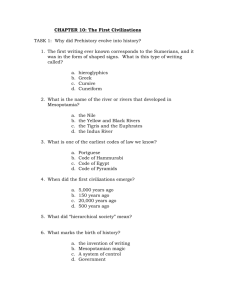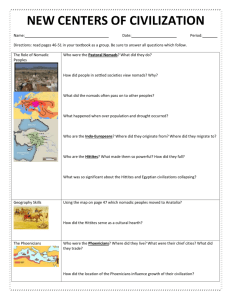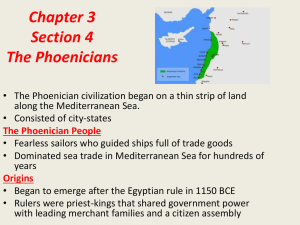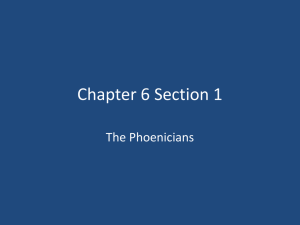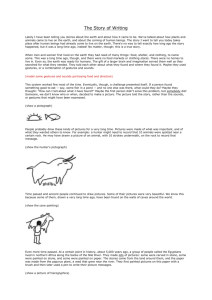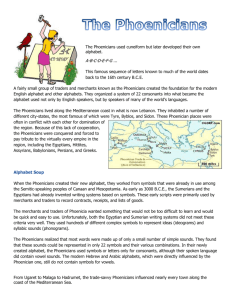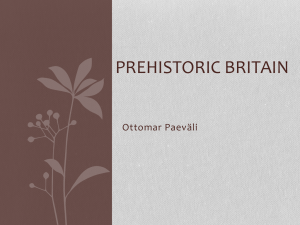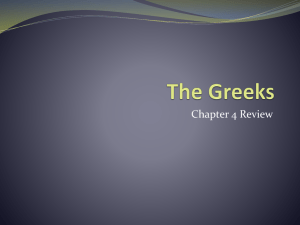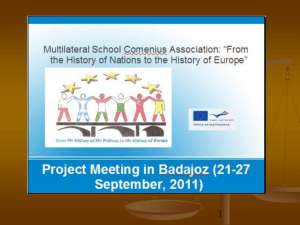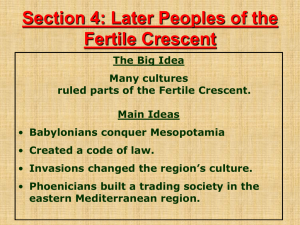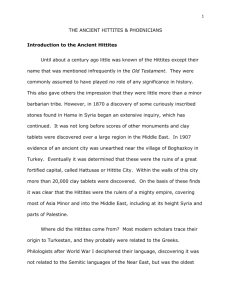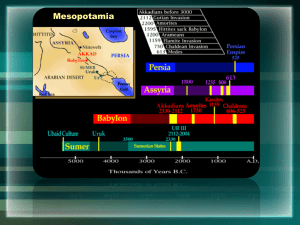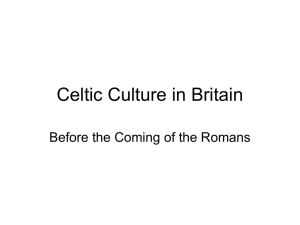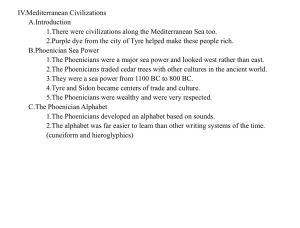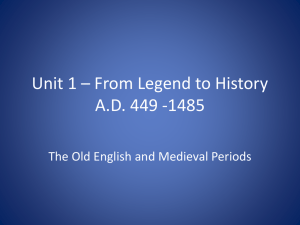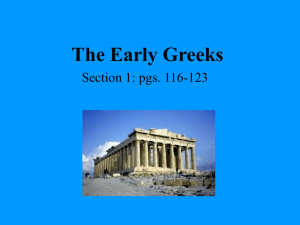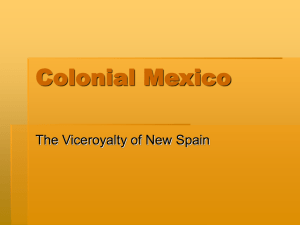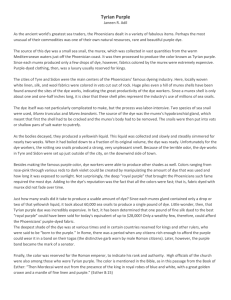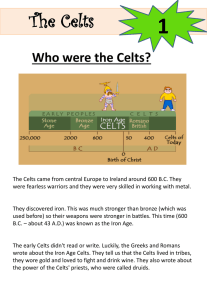spanish history timeline-Nick J
advertisement
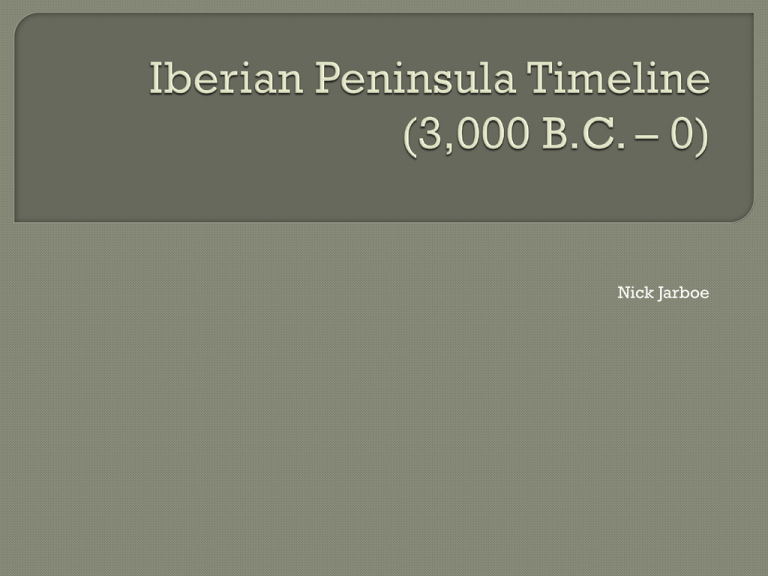
Nick Jarboe This was when the Iberians crossed over from Africa through the Mediterranean Sea and began to make it “Home”. This time was a time when many pottery and metalworking techniques developed as well as farming. The Iberians were from northern Africa The Celts settled in northwestern part of Spain after traveling over the Pyrenees Mountains from Europe. They brought livestock and many farming techniques. Green =Iberians Baby Blue =Celt territory The Phoenicians crossed the Mediterranean Sea as well, but from the east side, Syria Canaanites are the original names for the Phoenicians, the Greeks gave them their new name. (Biblical Truth) The Phoenicians as well as Greeks were introduced to many Spanish foods and ideas, bringing them back to Syria and other surrounding areas. Fish, salt, and minerals were some of these items. Spain was introduced to many foods as well including olives and grapes. The Greeks influenced the language of the Phoenicians The shipbuilding and navigation of Greeks were influenced by Phoenician study. Phoenicians taught the Greeks to sail by the north star. In 575 B.C. the Phoenicians fell to Alexander the Great and his conquest to gain Tyre. The Roman Empire occupied the Iberian Peninsula at around the 2nd century B.C. They used the peninsula as a “Supply Country” giving soldiers metal, olive oil, and a lot of food. The Romans also built many roads to make easier transport for soldiers and goods. They Emerged in around 500 B.C. to soon fall in 19 B.C. to the Romans Celts married native Iberians to form “Celtiberians”. The Celts were the war people and not any good at metal working or weaponry. Iberians were awesome at metal working but very peaceful and had no desire to fight. http://wildfiregames.com/0ad/page.php ?p=1565 www.spainexchange.com/travel_Spain/s ection-3.htm www.spainexchange.com/travel_Spain/a rticle-73.htm www.lost-civilizations.net/phoenicianshistory.html
